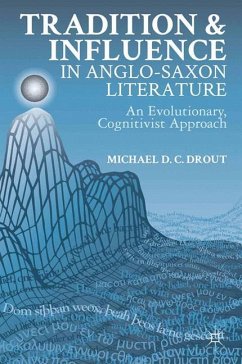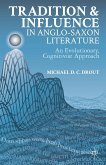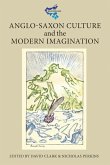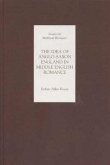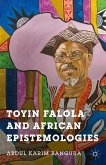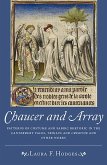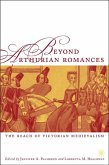This book introduces lexomics, the use of computer-aided statistical analysis of vocabulary, to measure influence and integrate research from cognitive psychology and evolutionary biology with traditional, philological approaches to literature. Connecting the theory of tradition with the phenomenon of influence, Drout moves beyond current theories.
"Tradition and Influence in Anglo-Saxon Literature is not only a stunning comprehensive study of Anglo-Saxon poems and their generic significance, but it is also a pioneering work that investigates the evolutionary manner in which genres develop and are disseminated. Indeed, Drout's lucid theoretical observations have great relevance for scholars in all fields of literature and the arts interested in understanding how traditions of reception are formed and maintained." - Jack Zipes, Professor Emeritus of German, Scandinavian and Dutch, University of Minnesota, USA
"Centuries of scholarship have left Anglo-Saxon literature, and in particular Anglo-Saxon poetry, rather like Sleeping Beauty: fascinating, alluring, unique, but surrounded by a tangled and thorny bank of doubts and non-conclusions. Drout's new book, and the new techniques which it demonstrates, now appear as the potential prince with the enchanted sword, to hack us into the clear. Densely theoretical, yet written in commendably plain English, Tradition and Influence is a book which will change the current of literary studies, and not only for Anglo-Saxon." - Tom Shippey, Professor Emeritus of English, Saint Louis University, USA
"Centuries of scholarship have left Anglo-Saxon literature, and in particular Anglo-Saxon poetry, rather like Sleeping Beauty: fascinating, alluring, unique, but surrounded by a tangled and thorny bank of doubts and non-conclusions. Drout's new book, and the new techniques which it demonstrates, now appear as the potential prince with the enchanted sword, to hack us into the clear. Densely theoretical, yet written in commendably plain English, Tradition and Influence is a book which will change the current of literary studies, and not only for Anglo-Saxon." - Tom Shippey, Professor Emeritus of English, Saint Louis University, USA

